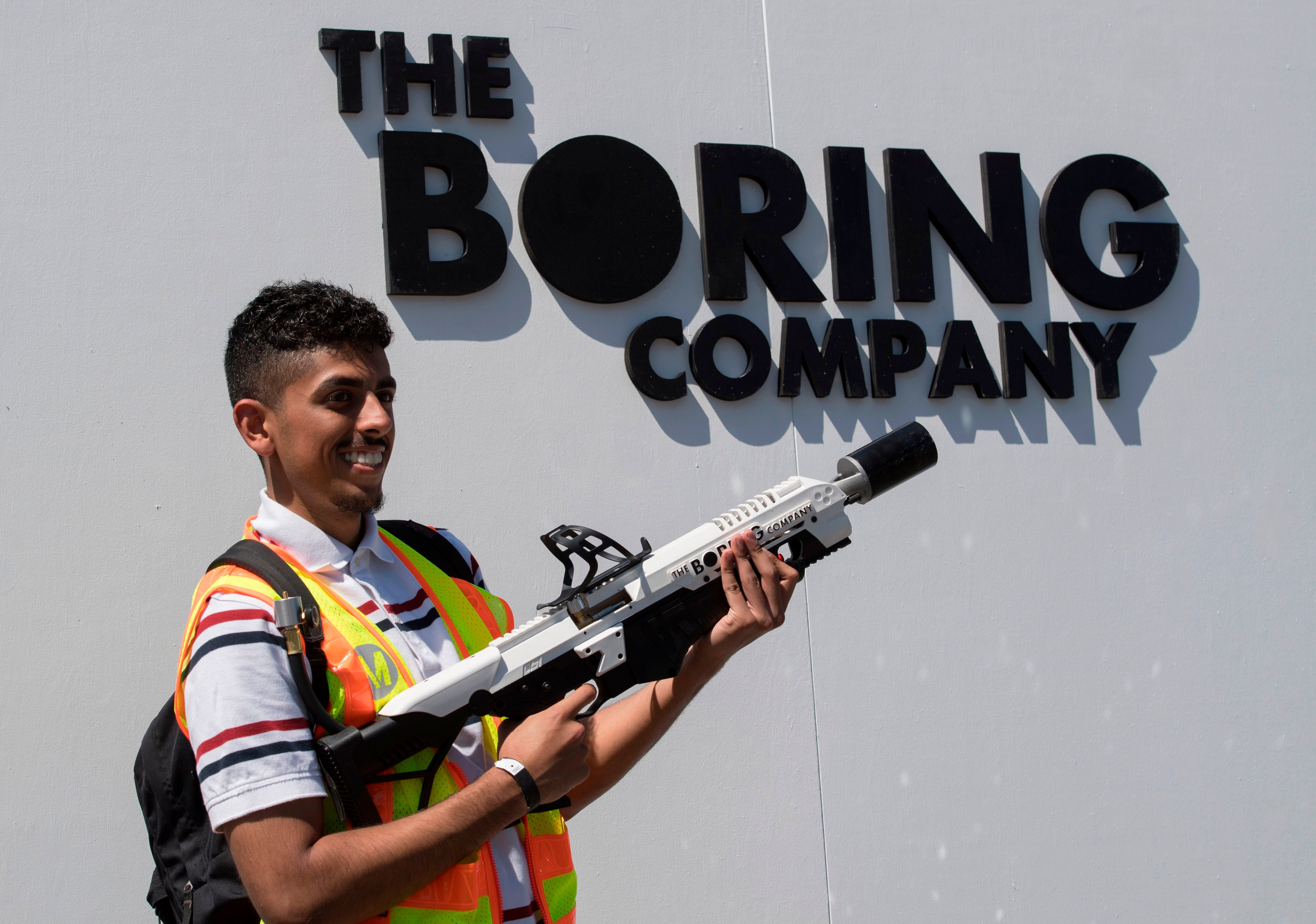Elon Musk’s ‘not a flamethrower’ getting accused of being a flamethrower in raids
The device has its strange name to try and avoid custom officials

Elon Musk’s “Not A Flamethrower” has been appearing in multiple police raids across Britain, Europe, and the United States.
Unlike normal flamethrowers, the guns made by Musk’s Boring Company do not ignite flammable liquid over long distances, CNN explains; rather, they work in a manner akin to large propane blowtorches.
The SpaceX and Tesla CEO sold more than $3 million worth of the $500 weapons in 2018, giving them their peculiar name in order to avoid legal issues when shipping the items.
“We are told that various countries would ban shipping of it, that they would ban flamethrowers,” Musk told podcaster Joe Rogan in 2018.
“So, to solve this problem for all of the customs agencies, we labelled it, ‘Not a Flamethrower.’”
Rogan asks Musk if it was an effective way of avoiding law enforcement, to which Musk replies “I don’t know. I think so. Yes,”
However as Mark Harris documents for TechCrunch, law enforcement did not agree with the delineation.
The report documents Italian courts sentencing an American man Max Craddock, as possession of a flamethrower can carry a 10 year-long sentence.
“It’s not a weapon of war,” his lawyer told the magistrate. “It’s a toy they sell to children.”
Eventually, Craddock was released from prison – although law enforcement did keep the item.
Across the Atlantic, British author John Richardson also faced confrontation from five police officers who raided his house with a warrant to search the property because of the Not A Flamethrower.
“I think a couple of them also had handguns,” Richardson told TechCrunch. “But I’m slightly hazy on that because my legs went wobbly.”
“I was like, ‘what’s going on here?’” Richardson recalled. “Then something clicked and I said, ‘Is this about the flamethrower?’”
In the United States, the Not A Flamethrower has been implicated in one local and one federal criminal investigation, and three instances where it has been seized from suspected drug dealers.
In Springfield, Massachusetts, police stopped a car for a a missing inspection sticker only to find a Boring Company flamethrower on the back seat; the owner of the weapon was charged with carrying a dangerous weapon and an “infernal machine” – a device that uses fire to damage property or endanger lives.
While flamethrowers are not usually referenced in laws, law professor Ryan Calo told the publication, they do come under general definitions of “deadly weapons”.
“Anything that is capable of causing serious bodily harm, even a rock, can be a weapon in the right circumstances,” he said, a consideration that seemingly had not occurred to Elon Musk.
The Boring Company did not respond to a request for comment from The Independent before time of publication.
Join our commenting forum
Join thought-provoking conversations, follow other Independent readers and see their replies
Comments

Bookmark popover
Removed from bookmarks